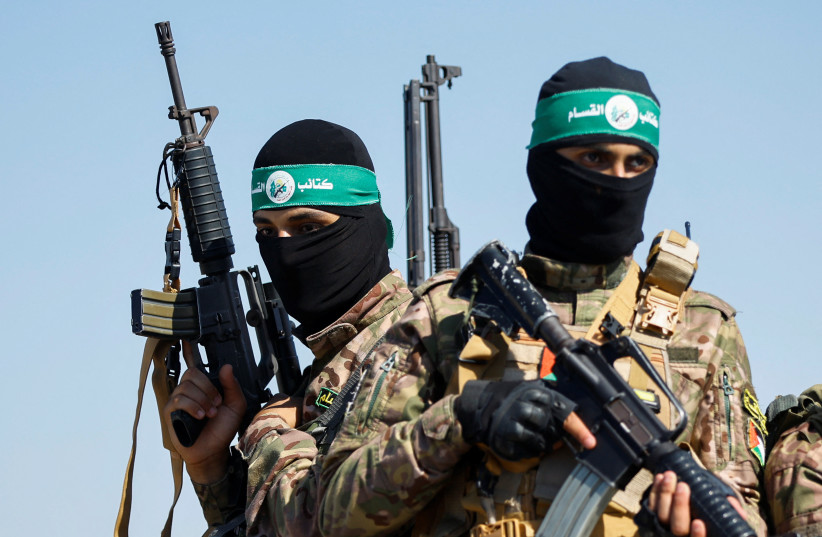Since the horrific October 7 attacks and war with Hamas, Israeli medics and hospitals have dealt with terrorists taken to them for medical treatment. This distresses healthcare professionals, who have no desire to treat terrorists who minutes or hours beforehand might have been killing and raping Israelis. In several Israeli hospitals, the staff protested treating such patients, and Israel’s Health Ministry ordered that terrorists should be treated in the prison service’s clinics.
The cases raised two fundamental questions:
- Should wounded terrorists be treated at all?
- Who should get priority of treatment in triage circumstances?
Some outspoken rabbis, including Rabbis Shlomo Aviner and Shmuel Eliyahu, asserted that Israel should not be providing any medical care for these terrorists. They might be seen as clear and present threats to the state – in halachic terms, a rodef (pursuer) – and do not deserve any help toward their recovery. As the Talmud states about grave evildoers, eino ma’alin (‘we don’t do anything to save them”).
The claim that a severely wounded terrorist remains an active “pursuer,” however, is difficult to maintain, since they have been physically disabled. One might retort that since they are fighters who would return to action once they are healed, they do not lose their status as “pursuers.” This approach might further deter Hamas members from attacking in the first place.

However, fundamentalists don’t get so easily deterred, especially in cultures that promote becoming a shahid (martyr). More fundamentally, to argue that neutralized Hamas terrorists still have the status of a pursuer would mean, conversely, that any Israeli citizen who could be called up for reserve service would be a legitimate military target. After all, if called up, they would become legitimate fighters.
These are the reasons that we place moral limits on warfare. We don’t exaggerate who represents a real threat so that we can minimize unnecessary bloodshed. Israel thus signed various international conventions to provide medical care to captured enemy soldiers. Once the threat is neutralized, we treat them.
Additionally, others fear that such selectivity will open a dangerous slippery slope. Once we start deciding who to treat and not to treat, we open a Pandora’s box. No one wants to treat murderers, wife-beaters, or rapists. Yet the job of healthcare professionals is to treat people, independently of their national origins or moral liability. Questions of moral and legal liability are addressed by other authorities at a later time.
The rabbinic decisor for Shaare Zedek Medical Center, Rabbi Asher Weiss, added two other factors. First, Hamas terrorists who are kept alive can be used as bargaining chips for hostage swaps. As such, treating these despicable patients might ultimately help save Israeli captives. Secondly, in the realm of public diplomacy, it helps Israel in the court of public opinion to perform such humanitarian gestures. Preserving our reputation can help us maintain critical political support from foreign countries.
THAT SAID, it is fully reasonable for Israel to establish that when medically feasible, terrorists should be treated at designated medical centers for prisoners. The staff and patients of public hospitals do not need to be unnecessarily subjugated to the presence of such despicable killers.
The ethics of medical triage for wounded Hamas terrorists
Another potential dilemma is whether medics or hospitals should prioritize treating severely wounded terrorists over more moderately wounded victims. During the so-called “knife intifada” of 2015-2016, the heads of the Israeli Medical Association and the Magen David Adom ambulance service announced that professional protocol mandates treating the wounded exclusively on the basis of their medical condition. The heads of the Hatzalah ambulance service and the ZAKA rescue organization disagreed and announced they would give priority to victims when they were sufficiently wounded to require immediate care, even if the terrorist was more severely wounded.
This passionate debate ultimately rests on questions of triage in which societies must prioritize how to allocate scarce medical resources (in this case, third-party rescue by a public servant). Who should get priority? The Mishna states that a man receives preference over a woman when it comes to sustenance, but a woman takes precedence when it comes to being redeemed from captivity. Elsewhere, the Talmud argues that a high priest sent to lead the troops in war (Kohen mashuah milhamah) received priority over a vice Kohen gadol.
However, many 20th-century scholars have questioned the relevance of these sources in the contemporary era. First, some noted that the rule giving preferences based on gender was not codified in the great Jewish legal codes. Other scholars marginalized the Mishna by asserting that these priorities would only apply when all other factors are equal. Yet if one patient begins treatment earlier, he/she should not be abandoned for someone else.
Alternatively, if one patient’s health situation is significantly worse than another’s, then that patient gains preference, irrespective of his/her social position. Accordingly, Rabbis Moshe Feinstein and Shlomo Zalman Auerbach contended that the Mishna is of limited relevance in contemporary triage circumstances, in which we correctly tend to treat people equally based on medical criteria.
That said, it remains problematic to apply such egalitarian notions when one patient is a citizen and another is an enemy terrorist. This basic social distinction would be made in the context of any battlefield triage care. It’s not clear why national interests suddenly disappear once these patients arrive in the hospital.
The medical association has argued that we are dealing here with non-military medics and that introducing social distinctions into healthcare will lead to a dangerous slippery slope. Nonetheless, it ultimately remains difficult to justify prioritizing national resources for an enemy when a citizen needs it at that moment. ■
The writer is executive director of Ematai and author of the forthcoming book Ethics of Our Fighters: A Jewish Perspective on War and Morality (Maggid).
